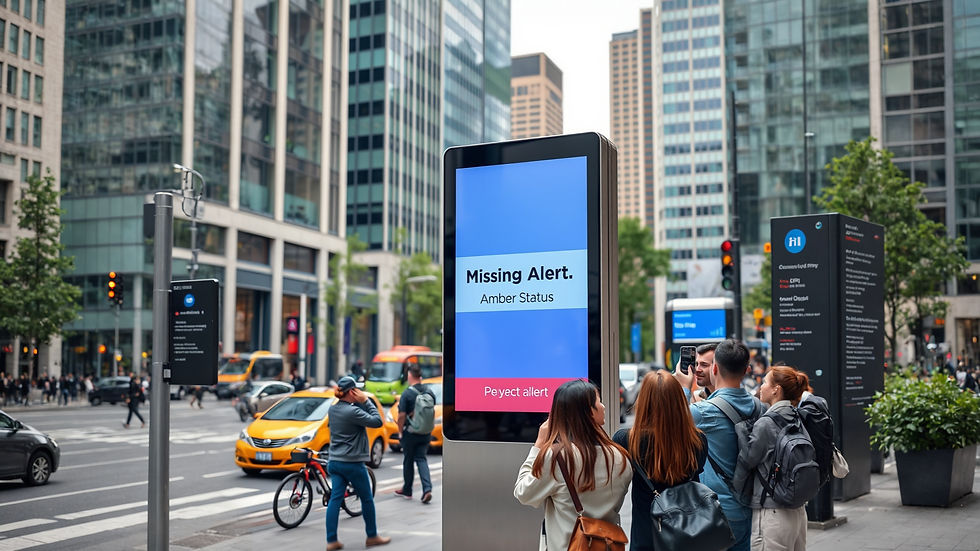
Smart Cities & Public Outdoor Kiosks by My Signo
Connect Citizens, Improve Urban Navigation, and Enhance City Communications
Why Digital Signage Is Key to Smart Cities
Modern cities are evolving into interactive information ecosystems. Static signage cannot match the versatility, durability, or engagement required by citizens navigating busy urban landscapes. Smart city digital signage and public kiosks deliver accessible real-time data, enhance navigation, boost ad revenue, and support emergency communication, all while withstanding outdoor conditions.
Core Benefits
Real-Time Public Transit Info
Provide bus, tram, or train schedules at stops and major intersections, reducing wait time anxiety and improving the commuter experience.
Interactive City Guides & Tourism Info
Outdoor touchscreen kiosks offer wayfinding, attraction guides, maps, and even ticket purchases.
Advertising & Revenue Generation
DOOH advertising on high-traffic screens can fund city projects via campaigns targeted to commuters or event attendees.
Public Alerts & Emergency Notifications
Quickly display weather warnings, amber alerts, road advisories, or civil notices.
City News & Community Engagement
Share local event information, public service campaigns, and announcements in multilingual formats.
Smart Features & Sensors Integration
Kiosks can integrate features like free Wi‑Fi, charging ports, environmental sensors, or public transport card access.
How My Signo Enables Resilient Urban Communication
1. Outdoor-Rated High-Brightness Displays
Panels rated for public environments with 1000+ nits brightness, anti-glare, vandal-resistant glass, and secure enclosures for 24/7 outdoor operation.
2. Interactive Public Kiosks
Touch-enabled, weatherproof stations delivering wayfinding, city maps, transit info, and tourist features.
3. Transit Stop & Platform Screens
Robust displays at bus, tram, or tram stops provide real-time departure, delay notices, and service advisories.
4. DOOH Advertising Placement
Public-facing screens support dynamically scheduled ads, matching time, location, weather, and traffic, to optimise revenue.
5. Emergency Alert Integration
Instantly broadcast citywide advisories or safety alerts via CMS with designated alert zones.
6. Cloud-Based Urban CMS
Manage public screens centrally, schedule multilingual content, and monitor performance and uptime remotely.




